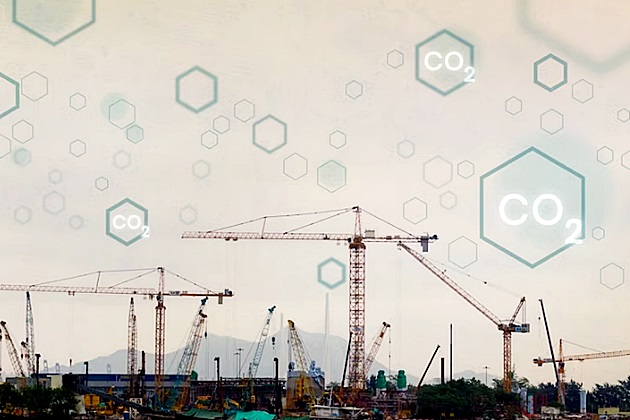1111

The study by the Danish technology company Danfoss asserts that CO2 emissions from construction equipment must be urgently reduced if the industry wants to achieve its climate targets.
400 million tons
The report claims that construction equipment emissions - at approximately 400 million tons - are responsible for CO2 emissions equivalent to the global aviation industry.
Moreover, according to Danfoss, excavators alone account for 50% of all emissions from construction machinery.
The white paper, "Roadmap to Decarbonizing Cities," was launched at the UIA World Congress of Architects in Copenhagen.
During the event, Domenico Traverso, President of Danfoss' Editron and Incubation division, emphasized the importance of implementing energy-efficient technologies to reduce the carbon footprint of construction machinery.
Traverso said that tackling the challenges of electrification while also reducing diesel consumption in excavators is key to achieving sustainability.
Electrification complexity
According to Danfoss' white paper, while smaller vehicles and passenger cars can more easily transition to electric models with batteries powered by renewable energy, electrifying excavators and other heavy-duty vehicles poses greater complexity.
Excavators operate in demanding conditions and require longer working hours between charges, making it difficult to match the productivity of their diesel counterparts with large batteries.
This results in resource-intensive production processes and higher initial costs, making the transition to electric excavators, both technologically and economically, challenging in many cases.
Furthermore, the lack of necessary charging infrastructure at construction sites, especially in large sites like quarries, presents logistical obstacles due to battery weight.
By improving efficiency, the dependence on large batteries, the demand for charging power, and the need for renewable energy generation can be reduced.
In his statement, Traverso said, "The construction sector is very cost-sensitive, and we need to decarbonize in the most cost-efficient way, or it won't happen at scale. And here, efficiency becomes a key factor."
Danfoss' white paper, "Impact," explores the potential of readily available technologies that can transform the construction industry and make low-emission construction sites a feasible reality.
Currently, excavator systems, as stated in the white paper, operate with an efficiency of only 30%, with 70% of the engine's energy wasted.
Alternative technologies
Danfoss highlights significant potential energy reduction by implementing measures such as variable displacement pumps, digital displacement, variable-speed pumps, decentralized drives, and energy recovery systems.
According to the company, these technologies can enhance efficiency, reduce energy consumption, and pave the way for electrification.
By implementing energy-efficient measures, Danfoss says excavators can achieve more work with smaller engines and reduced fuel consumption, thereby reducing the battery capacity needed for electrification by up to 24.8%.
These measures could lead to fuel savings of 15-30% in excavators weighing over 15 tons while increasing their working capacity.
Danfoss claims that as technology continues to evolve, these measures can be applied to excavators of all sizes, potentially achieving fuel savings of up to 50%.
The report can be downloaded from here: https://www.danfoss.com/en/about-danfoss/news/cf/deep-decarbonization-of-cities-essential-for-key-climate-targets/




